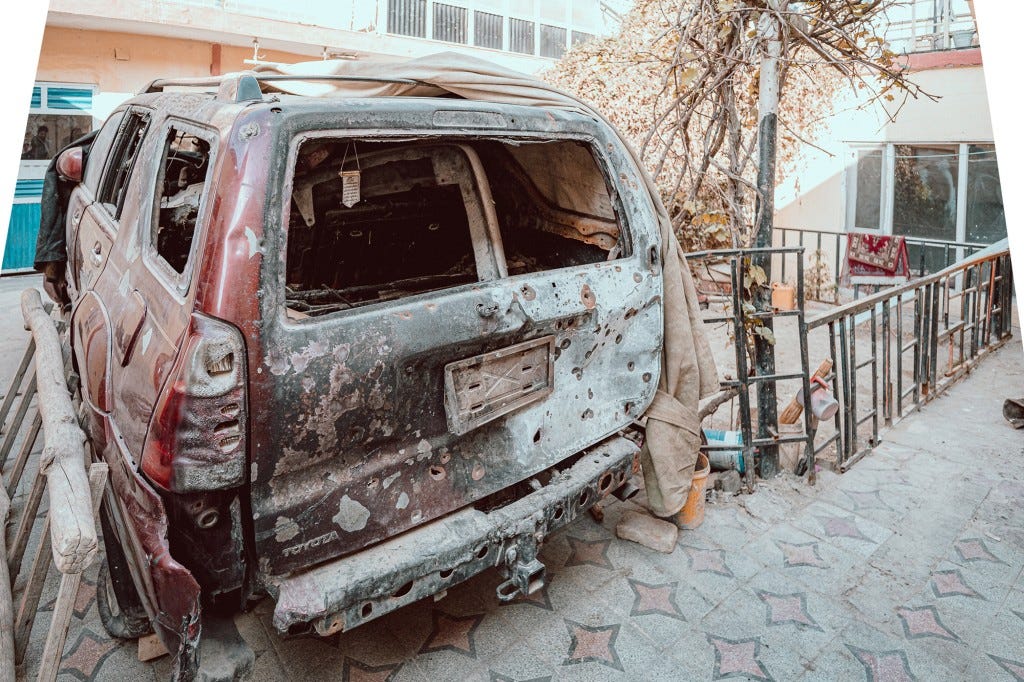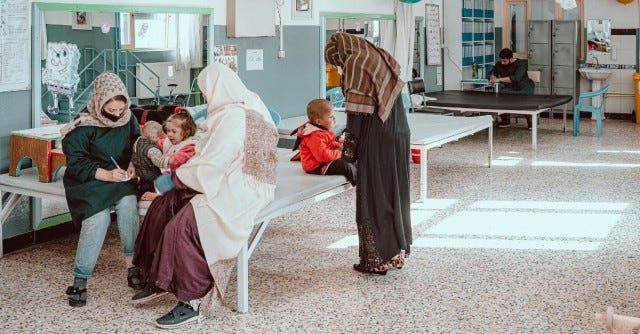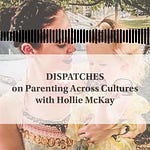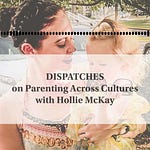“It is forbidden to kill; therefore all murderers are punished unless they kill in large numbers and to the sound of trumpets.”
― Voltaire
Monday marks three months since Kabul crumbled into the hands of the Taliban. It feels like a lifetime ago, but yesterday at the same time. The evening earlier – an especially sultry late summer night – my photographer Jake Simkin and I were working in the northern city of Mazar-e-Sharif when it fell at dizzying speed. We had just been out with some of the best-trained Afghan Special Forces, who assured us with great patriotism that the typically Taliban-resistant city would never fall.
How wrong we were.
One moment, the place was abuzz with markets and vibrancy. But as that fate-filled Saturday droned on, we saw those from peripheral villages fleeing into the eerily empty city. The earliest flight I could get back to Kabul was still more than two days away, and with a sickening feeling, I kept trying to tell myself Mazar would hold. At dusk, Jake and I ventured to our usual kebab café – which was strangely silent. The spidey sense kicked in, and we abandoned our hookah and stabs of meat and hurried back toward our hotel. Just as we approached the heavy armored door, motorcycles started rolling in, and celebratory gunshots filled the air.
That was the Taliban takeover.
At that point, we really had no idea how the former insurgency – who had waged a bitter and bloody war against the U.S and its allies – would respond to foreigners, foreign journalists, and a woman. We stayed bunkered down and hoped for the best. I will forever be grateful to the young hotel staff who stayed to take care of us, bringing me tea and whatever food they had left in the kitchen. They assured me over and over that, I was safe, even though I could sense the fear glistening through their own eyes.
Fortunately, those initial woes we had of them targeting outsiders have proven wrong. The Taliban is not ISIS. A foreigner is generally regarded as a guest in the country, in keeping with their Pashtunwali tribal customs. The Talibs are becoming increasingly difficult to work with given their desperation to restrict and control, but I interact with them daily and do not fear in any way for my life at their hands. (MORE ON THAT LATER.)
RELATIVES OF AFGHANS KILLED IN US DRONE STRIKE STILL HAVEN’T HEARD FROM WASHINGTON
Relatives of the ten innocent Afghans killed in a US drone strike before the Biden administration’s frenetic August departure from Afghanistan say they haven’t had any contact from Washington, let alone condolences or compensation, more than two months after the tragic blast.
“No one has directly contacted with us; we have only heard apologies through the media,” Aimal Ahmadi, 32, who is the brother of the mistaken target Zmaray and lost his 3-year-old daughter, Malika, in the US drone strike, said wearily from the abandoned Kabul home.
Last week, the Pentagon declared it had concluded its probe into the Aug. 29 Kabul drone strike. A release pegged the blast as an “honest mistake” and said military or international laws of war were not violated, nor was criminal negligence involved. Instead, Lt. Gen. Sami Said, the inspector general of the Air Force, blamed “confirmation bias,” “communication breakdowns” and “execution errors.”
“I heard that the USA says it does its work honestly, but this is not honesty,” Aimal says of the report. “We are all civilians. My brother did not have contact with any military. Yet they targeted this area.”
The report remains classified, raising concerns over the Defense Department’s lack of transparency and how the intelligence for the hit — purported to be on an ISIS-K operative preparing to carry out an attack on US interests — was sourced and disseminated.
“No one has contacted us at all,” fellow brother Ajmal Ahmadi, 33, affirms.
He winces as he speaks of the fractured family and says that they would regularly come to the charred home but would cry so much that their older brother removed the Toyota Corolla targeted in the attack a few weeks ago. The car parked beside it, scorched and gray, still languishes in the courtyard.
“Last time we came, someone lost consciousness. So we cannot come here; the mothers are not in good condition,” Ajmal continues. “The family is still in shock. We haven’t recovered.”
And Aimal is left with only one surviving 7-year-old daughter, who is still in deep shock and confusion.
The family was living in the humble home, located in Kabul’s Khwaja Bughra district two miles from the airport, waiting with high hopes to be called for an evacuation flight. Aimal had filed his Special Immigrant Visa (SIV) application — having worked in data entry and identification card printing for US contracting company DynCorp between 2011 and 2014. Several other family members in the home also worked for various international organizations throughout the protracted war.
They were waiting with baited breath for the call to head to the airport when tragedy struck.
Press reports have indicated that the United States government is making monetary compensation to the family and is expediting the survivors’ visas to leave the war-shattered country for greener pastures in the US, but the family asserts that no such gesture has come their way. Rather, such reports have endangered the mourning relatives even further — under the false guise that they are suddenly flush with cash and planning a hasty escape.
Moreover, Aimal points out that he has not heard a single word about his SIV case.
CLICK TO READ MORE ABOUT THE MOURNING FAMILY’S PLIGHT
HOW AFGHANISTAN’S NEW GOVERNMENT IS LURING FOREIGNER TOURISTS TO RETURN
Not The Onion.
As the sun dips behind the towering, ancient rocks – spreading pinkish smears across the frozen sky – dozens of Taliban fighters pose for selfies. They’re poised in front of what is left of the Buddhas of Bamyan, which the Taliban blistered and blustered more than twenty years ago, much to the horror of the international community.
The irony. Only now, the former insurgency – which stormed to Presidential Powers on August 15 – vow that they have no intention to erase history but rather protect the deep and abundant past entrenched in Afghanistan. Whether such an order will stick long-term remains to be seen. Yet for now, the Taliban is on a colorful PR quest and says it is determined to build its tourism sector as a means to keep alive the fast-falling economy and spiraling humanitarian crisis.
“We are establishing our Facebook page where we will promote tourism and tell people how beautiful Afghanistan is, showcase the mountains, rivers, valleys, and everything,” the newly appointed, 38-year-old Tourism Director Mohammad Zubair Musafer quips from his Kabul office. “We are going to promote our country. So come and take a firsthand look.”
But drawing in those outsiders will be a steep challenge for the regime, mainly responsible for the unrest that permeated the Asian nation and debilitated tourism efforts attempted by the previous, U.S-backed government.
However, immediately after their late summer takeover, senior Taliban pledged to issue tourism visas along with overtures that everyone was welcome.
“The previous government have done nothing over the years. They didn’t care about the country. With the money, (Afghanistan) could be like Doha or Dubai. But foreigners were not (visiting places) because of the fear of getting kidnapped or anything else happening, but we are ready to do a setup where people can visit easily,” Musafer bombasts. “We will hire people who have studied outside the country, who have experience in the field.”
Nevertheless, much of that fear was the Taliban itself.
Over the past few weeks, the Islamic Emirate – the official term for the Taliban government – brought in its own director Mohammad Zubair Musafer, a former intelligence operative. Last month, his team set about reviving the previous government’s Facebook page, “Afghan Tour GD,” in the hopes of alluring travelers to capture the country’s natural beauty for themselves.
Musafer also alleges that their marketing will primarily center on a word-of-mouth approach.
“Iranians, Turkish, German, and Chinese – these are people who are here. They travel as tourists. We ask them to bring more people connected to their country,” he explains. “Please come to Afghanistan is not the way Americans have portrayed it. The Taliban will not eat you alive. And whatever mentality that has been provided, we want to change that.”
CLICK TO READ MORE ABOUT THE TALIBAN’S TOURISM ENDEAVORS
WOMEN AND GIRLS LEFT BEHIND IN AFGHANISTAN BATTLING DEPRESSION AND HOPELESSNESS
Almost three months into Taliban rule in Afghanistan, and the many girls and women left behind in the aftermath of the U.S. withdrawal are struggling with an array of mental health afflictions as the window of hope for escape narrows by the day.
Most notably, those who once prospered in the sports sector feel banished to their basements, unable to do the things they loved most in the world as the Emirate regime has prohibited women from playing sports and stopped most from going to school. The jobs they once held with dignity have all but dried up.
“Every girl’s life has changed, especially for athletes. We cannot play again,” Aryane Shamim, the 23-year-old Women’s Tennis Coach in Kabul, tells me with melancholy. “Our hope is gone. It is very hard – we don’t have a future.”
In addition to playing tennis at an international level, Aryan studied Business Administration and volunteered for numerous business-centric publications. Only now she is stuck at home.
“There is nothing to do. The only thing is to start a life in another country. In Afghanistan, we cannot play tennis or study, and Afghan girls are not going to school. We are really scared to go outside,” she continues.
For now, the girls are passing the protracted days inside their family homes, following life coaches on Instagram and messaging them for words of wisdom.
“My dream was to grow up and become a professional tennis player, to be something for myself. We don’t want to marry by force. I grew up with a dream,” stresses Somayah, 21, a computer science university student. “Now, there is no place even to practice. We cannot go to gyms or schools or work. I am completely depressed. I don’t know what will happen and what my future will be.”
According to the United Nations Office for the Coordination of Humanitarian Affairs (OCHA) ’s humanitarian news service site ReliefWeb, only three percent of individuals visiting health centers are offered assistance for mental health woes despite alarming rates of post-traumatic stress disorder (PTSD).
Women are also analyzed to harbor the silent wounds of war at far higher rates than their male counterparts. Yet, the fact that some women are speaking out marks a significant step forward. Stigma has long been a mammoth hurdle in Afghans reaching out for help regarding mental health issues. Nonetheless, amid the heavy fighting Human Rights Watch estimated that around half the population were enduring psychological affliction. While the previous government trained more than 750 counselors to provide primary treatment, and hundreds of mental health facilities were erected nationwide, less than ten percent of the population used the services.
CLICK TO READ MORE ABOUT THE GIRLS AND WOMEN DESEPERATE TO FLEE
For those interested in learning more about the aftermath of war, please pick up a copy of my latest book “Only Cry for the Living: Memos from Inside the ISIS Battlefield.” You can also listen to a podcast recorded this week with my Egypt-based friend, Tahir.
Thanks again for your support. Follow me on Instagram and Twitter for more updates
Photos courtesy of my brilliant photographer @JakeSimkinPhotos. Please consider a paid subscription to allow us to continue this work.

















Share this post